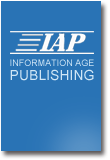
Shakespeare Never Told Us Caliban Writes
Inclusive Education for Linguistically Different Learners in Caribbean Educational Contexts
Edited by:
Paulette Feraria, The University of the West Indies, Mona. Jamaica
A volume in the series: Caribbean Discourse in Inclusive Education. Editor(s): Stacey Blackman, University of the West Indies. Dennis Conrad, SUNY Potsdam.
Call for Chapters
Shakespeare’s The Tempest is undoubtedly a counter-discourse on colonial education and the marginalization of the learner under the guise of ‘inclusiveness. “The delineation and juxtaposing of the characters of Prosper and Caliban as colonizer/colonized, master/slave and teacher/student move beyond the conventions of literary binary opposites to chart a Caribbean discourse on education which denies learners who are linguistically different the right to an education that moves them beyond the marginalized experiences of ‘working with the hands’ towards intuitive pedagogies of ingenuity. Caliban’s protest registers a shift towards as well as a call for equitable, inclusive and child-right centered education for learners whose language, the tool for learning, is viewed as inferior and deficit. These linguistically different learners are Caliban’s children in the Caribbean and across the diaspora. “Shakespeare never told us Caliban rights/writes” is a deliberate recognition of the silencing and suppression of the cognitive capabilities of linguistically different learners and the lack of sensitivity to their right to learn, achieve and prosper in mainstream classrooms. The volume charts a bottom-up discourse on intuitive pedagogies of ingenuity and emancipatory praxis.Original Chapter submissions are invited for the edited book, Shakespeare Never Told us Caliban Rights/Writes: Inclusive Education for the Linguistically Different Learner which shifts focus from emphasis on language corpus and status and the rightful recognition of Creoles as languages towards the rights and power of the speakers as creative learners and innovators and the need for greater teacher-intuitive and learner-liberating pedagogies to optimize these realities.
Themes of Interest include but are not limited to:
The Caliban Figure in Caribbean Classroom
Teachers Write Back: Language/Literature /Literacy Pedagogy for inclusiveness
Inclusive Curriculum
Deconstructing the West Indian Novel
Naturalizing the Non-West Indian Novel
Teaching /Learning Shakespeare in Caribbean Contexts
Inclusive Practices for the 21st Century Classroom
Proposal:
Authors should send a 300-word chapter abstract and a 1000 word chapter outline, CV, and contact information to Paulette Feraria by March 31, 2019. Preliminary acceptance will be granted by April 15, 2019. Full chapter drafts will be due by June 30, 2019, with publication expected by January 2020. Chapters should be between 7,000 and 9,000 words, including all text, tables, and references.
Tentative Schedule for Publication:
Abstracts/ Chapter Outline submissions due by: March 31, 2019
Full chapter drafts due by: June 30, 2019
Double Blind Review completed by August 31, 2019.
Final Chapter Submission: October 15, 2019.
Anticipated publication: January 2020.
Editor Emails:
calibanwrites2@gmail.com
Paulette.feraria@uwimona.edu.jm
Chapters for themes include but are not limited to:
PART I: The Caliban Figure in Caribbean Classrooms
(i) The Creole Speaker: Language, Identity and Social Investment
(ii) Language Resistance, Rights and Resources
(iii) Learning Prospero’s Language: The ESL Learner in Spanish/Dutch Caribbean
(iv) Dismantling Learner Deficit Ideologies for Inclusiveness
(v) Linguistic Marginalization and the Liberating West Indian “Speakerly Text”
(vi) Rites-of Passage to Selfhood and Vocation : The West Indian Bildungsroman
PART II: Prospero’s Course and Caliban’s Curse: Language and Curriculum Change
(i) Curriculum Reform Processes for Inclusive Education
(ii) Literatures in English and Education for Sustainable Development
(iii) Revising Prescriptive ad Restrictive Education for the liberation of Linguistically Different Learners
(iv) Differentiated Instruction for Inclusive Learning: Paradox and Practice
(v) Alternative Curriculum for Inclusive Education
(vi) Linguistic and Literary Stylistics and the Teaching of Caribbean Literature
PART III Teachers Write Back: Literature Pedagogy for Inclusiveness
(i) Shakespeare Over Our Way: Dismantling the Mystery of Shakespeare for Caribbean Students
(ii) The Paradoxical Mirror: It’s Me but It’s not Me: Helping Caribbean Secondary School Students to see themselves on the Shakespearean Stage
(iii) Re-constructing Caribbean Identity in the Classroom: The development of Self Awareness through literary discourse of the post-colonial experience
(iv) Teaching the America Novel in the Caribbean Context: Revealing the Unmentioned Black Character
(v) Vicarious Experience and the Literature Text: Building Cultural Awareness and Tolerance in Caribbean classrooms
(vi) Journey through Time and Space: Cultural Disparities and the Victorian Novel
(vii) Crossing the Cultural Divide: Writing Back to the Victorian novel from the Jamaican Classroom
(viii) Inking the Pen to Write Back: Literature and Response and the Shaping of the Writer in the Study of Post-colonial Literature
Part IV Inclusive Pedagogies and Practice for the 21 Century Classroom
(i) The Search for Twenty-first Century Pedagogies and Inclusive Classroom Sensibilities
(ii) Education Technologies for Inclusive Education
(iii) Flipped Classrooms: Re conceptualizing and Re-constructing for Inclusive Education for Creole-influenced Learners
(iv) The English A &B School Based Assessment : Building a Scholarship of Learning
(v) Caliban Writes Back: Academic Writing in a Digital Age
(vi) Towards a Pedagogy of Indigenous Critical Praxis for the globalization of learning for Creole – Influenced Learner



